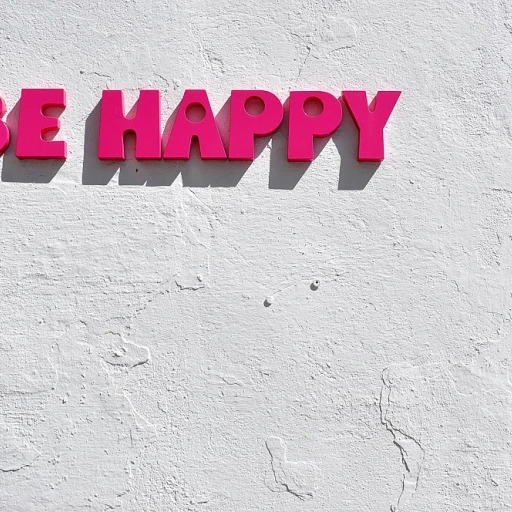Understanding the Importance of Skills Assessment
Why Skills Assessment Matters
Taking a good look at your skills is like holding up a mirror to your career. It helps you see what you've got going for you and where you might need a little polish. Whether you're a student just starting out or someone with years of work under your belt, understanding your strengths and weaknesses is crucial when thinking about a career change. When considering a career transition, it's easy to feel overwhelmed by the sheer number of choices. But here's the thing: knowing what you're good at can help narrow down those options. Skills assessments can shine a light on your talents, making it easier to find a career path that aligns with your values and interests.The Role of Self-Reflection
Self-reflection is a key part of skills assessment. It involves taking a step back and evaluating your own personality traits, interests, and values. This isn't just about listing what you can do; it's about understanding what you enjoy and what motivates you. Ask yourself:- What tasks make me lose track of time?
- Which activities do I find draining?
- What have others praised me for in my work or life?
Real-Life Examples
Take Sarah, for instance. She spent a decade in corporate marketing but felt unfulfilled. After a thorough skills assessment, she realized her strengths lay in creative writing and storytelling. This insight led her to explore a career in content creation, where she now thrives.Making Informed Decisions
Armed with the knowledge of your skills and interests, you can make informed decisions about your career transition. This isn't just about finding a job; it's about finding the right job for you. For more insights on how to approach this process, check out this guide for executives navigating career transitions. Remember, skills assessment is not a one-time event. It's an ongoing process that can guide your career development throughout your life. So, take the time to understand yourself better, and you'll be well on your way to a successful career transition.Identifying Transferable Skills
Recognizing Skills You Can Transfer Easily
Trying to move from one career path to another can feel like stepping into the unknown. But there's good news: not all your skills vanish into thin air when you switch jobs. Recognizing the skills you can transfer is like finding gold during your job search adventure. Think about the strengths you show at work or even while helping a friend, whether you're good at solving problems or managing time. Skills like communication, leadership, and critical thinking can move with you across different job roles. They're not tied to any specific job, making them highly valuable in a career transition. If you're itching for a career change, doing a skills assessment can help you identify what you're really good at. It will ease the transition, highlighting which of your skills are needed in other industries.Spotlight on Toolkits and Techniques for Skill Check
So, you're up for a new job, but what tools can break down what you've got in your skills backpack? That's where skill assessments come into play. Think of them like career tests. Here are a few ways to get started:- Personal reflection: Grab a pen and jot down your proudest achievements.
- Feedback: Talk to peers or mentors to get a sense of your strengths and weaknesses.
- Online assessments: Websites abound with free career tests to see where your interests, values, and personality fit best.
Fitting Your Skills with Career Aspirations
Does the thought of aligning your skills with your future career goals make you nervous? It shouldn’t. Consider what makes you enthusiastic and fits well with your interests. A good career development plan involves matching your skills with job roles that fulfil you. Engage in career exploration to uncover potential paths that match your skills and interests. Use assessment tools to target career development areas that align with future job opportunities. For extra help, you might want to take a look at some strategies for self-assessment in planning your career transition. Check out self-assessment planning your career transition for some insight. Taking these steps will make you savvy and strategic in making informed decisions about your job search, putting you in control as you take on new career paths. It’s about finding that job where your strengths meet your passions, setting the stage for a fulfilling career move.Tools and Methods for Skills Assessment
Choosing the Right Tools to Identify Your Strengths
When making a career change, it's all about knowing your strengths and recognizing where they fit in the job arena. With the right assessment tools, you can unearth your strengths and see how they align with your interests and career goals. Here's how you can get started on this career transition journey:- Understanding Personality and Interests: Start with personality traits and interests. Tools like the Myers-Briggs (MBTI) help assess which jobs align with your natural preferences. This test dives into how you interact with others, make decisions, and manage life. Remember, there's no right or wrong answer. The goal is understanding yourself better.
- Evaluating Your Skills: Free assessment tools such as the 16Personalities test offer insights into your soft skills, such as communication or teamwork. They can also help highlight strengths or weaknesses you weren't aware of.
- Deep Dive into Career Development: If you're already working, consider tools focused on professional growth like StrengthsFinder or SkillScouter. These can spotlight skills you can carry into a new role, aiding in career exploration and the creation of a skills-based resume.
- Psychometric Assessments: These tests are great for providing holistic insights into abilities, interests, and work values. Tools like The Career Key help measure key areas, supporting informed decisions during job search or career path considerations.
- Student and Graduate Tools: For students or recent grads entering the workforce, tools tailored for newcomers offer focused guidance. Insights gained from these tests ensure you're setting off on the right career path.
In this ever-shifting job market, having an in-depth understanding of yourself can make career transitions smoother. For further reading and a deeper dive into the tools and methods, check out our section about unlocking opportunities through career transition workshops here. The key to success lies in finding the right support tools that suit your unique needs. Take the plunge, start assessing, and step confidently into your new career adventure!
Aligning Skills with Career Goals
Match Your Skills with Your Career Aspirations
Aligning your skills with your career goals is like matching puzzle pieces. It can be like figuring out which of your abilities can support the career path you dream of taking. Imagine you have skills in communication, organization, and creativity. Where do these fit in the world of work? Maybe they're ideal for a marketing job or planning events, or even something else entirely. It's about finding that sweet spot where your skills meet your career dreams. An important step is to identify your strengths that dovetail with your desired job. Think about the tasks you love and excel at—those point to potential fits in new careers. If you enjoy problem-solving and working with numbers, you might look towards fields like finance or data analysis. This process is also about understanding your personality, values, and interests, which can shape your job satisfaction and success. Do a self-assessment to really get to know yourself. What are you passionate about? What kind of work aligns with your values? Which roles resonate with your true interests? These aspects often intertwine with how your skills can be best utilized. Moreover, the variety of free career tests and career assessments available can help. These assessments bring clarity by pinpointing how your existing skills can transfer to other fields. They're not perfect, but they can definitely light the way. Once you have a sense of direction, pivot to how you present your skills and experiences, especially on your resume. Highlight relevant skills that show you as a prime candidate for a career change. For example, if shifting from a tech role to teaching, emphasize mentorship or training skills you’ve acquired over time. Don't shy away from seeking advice. Connect with others who have made transitions similar to the one you're considering. First-hand stories and guidance can be a goldmine of practical wisdom. Finding mentors or joining forums and groups related to your new field can help smoothen your transition. Finally, address any gaps you may identify. Whether through courses or self-study, investing in learning can align your abilities with the demands of your new industry. Remember, learning is a lifelong journey, and each skill honed is a step closer to fearless career transitions. Aligning skills with your career goals isn't just checking boxes—consider it as laying a solid foundation for your next steps. You are painting a picture of your new professional path with the colors of your existing skills. And that's both strategic and genuinely empowering.Addressing Skill Gaps
Filling the Skill Gaps with Confidence
When you're in the middle of a career transition, it's like standing at a crossroads, wondering which path will lead to success. One of the biggest hurdles is addressing those pesky skill gaps that might be holding you back. But don't worry, it's not as daunting as it sounds. With a little bit of strategy and a lot of determination, you can bridge those gaps and step into your new career with confidence.
First things first, let's talk about how to spot these gaps. You've already done some skills assessment, so you know where your strengths lie. Now, it's time to focus on the areas that need a little more attention. Ask yourself:
- What skills do I need for my desired career path?
- Which of these skills do I currently lack?
- Are there any free resources or courses available to help me learn?
Once you've pinpointed the gaps, it's time to take action. Consider enrolling in online courses, attending workshops, or even volunteering in roles that require the skills you want to develop. Websites like Coursera, edX, and Khan Academy offer free courses that can be a great starting point. Remember, learning doesn't have to be expensive.
Another effective approach is to seek mentorship. Connecting with someone who has experience in your desired field can provide invaluable insights and guidance. They can help you understand the nuances of the job and offer advice on how to develop the necessary skills.
Don't forget about the power of practice. Whether it's public speaking, coding, or project management, the more you practice, the more proficient you'll become. Consider joining clubs or groups that focus on these skills, where you can practice in a supportive environment.
Finally, keep track of your progress. Regularly review your skill development and adjust your strategy as needed. This not only helps you stay on track but also boosts your confidence as you see how far you've come.
By addressing your skill gaps head-on, you're not just preparing for a job; you're setting yourself up for a successful career change. So, roll up your sleeves, embrace the challenge, and get ready to shine in your new career path!







